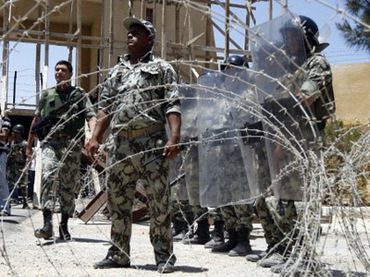
When Gouda Abdel Khalek was Minister of Supply in March of 2012 he made a very “novel” suggestion— not the good kind of novel. At the time, Egypt’s food subsidy programme supplies were woefully insufficient to feed the millions of Egyptians benefitting (in theory) from the assistance. With some governorates having no rice for distribution for many months in a row, Abdel Khalek suggested that Egyptians begin making mahshy, the rice-stuffed vegetable dish, with the orzo-like pasta, lissan asfor (sparrow’s tongue in Arabic), instead of rice. He proposed distributing pasta to make up for the food programme’s inability to secure and distribute rice.
Egypt has huge wheat supply problems. The rice supply problems are big, largely the result of some very bad government policies on rice and rice exports. But it’s fair to say that Egypt’s problems with wheat are way, way bigger than its rice problems.
Whether Abdel Khalek had not considered or not taken seriously enough the country’s greater wheat vulnerability and risks are unclear. What is clear is that as the world’s largest importer of wheat, Egypt is highly exposed to even the slightest change in the global tradable wheat price or supply. No country in the world is more vulnerable. Replacing rice with pasta, a wheat product, will never be a good idea for Egypt.
It is quite simply tragic that the minister responsible for the public food programme at the time would make such a “novel” suggestion. Even more tragic, the logic and approach to procuring the country’s wheat supply have remained as void of common sense as Abdel Khalek’s suggestion.
There are many known effective ways to reduce a country’s wheat’s (or any commodity) supply risks. Egypt uses none of the modern approaches, relying on outdated and ineffective solutions. The government continues to approach the purchasing of wheat with the least sophistication possible, paying a much higher price than necessary.
Between November 2007 and October 2008, for instance, when wheat prices were at a then historic all-time high, Egypt imported an estimated 7m metric tonnes of wheat. The wheat import bill was estimated at about $2.75bn. According to calculations done by the World Bank, if Egypt had used known modern financial instruments to protect against risk, up to 20% of the costs of international wheat purchases during the height of the food crisis could have been saved. It is estimated that known hedging strategies could have saved somewhere between $150m-$600m of the $2.75bn spent on wheat, depending on the strategy.
Once again, the government is offering assurances about the country’s wheat supply. Unfortunately, the strategy is still very much the same as it was when the government could have saved between $150m to $600m and it will not reduce the massive wheat supply risks Egypt has long since been unable to afford.
The leadership responsible for the country’s food security is not only out of touch with realities and struggles of the poor, but also with the solutions available to reduce the country’s risks and vulnerabilities in guaranteeing food security. Big problems await if these “let them eat cake” and “let them use lissan asfor” realities are not addressed by real solutions.



